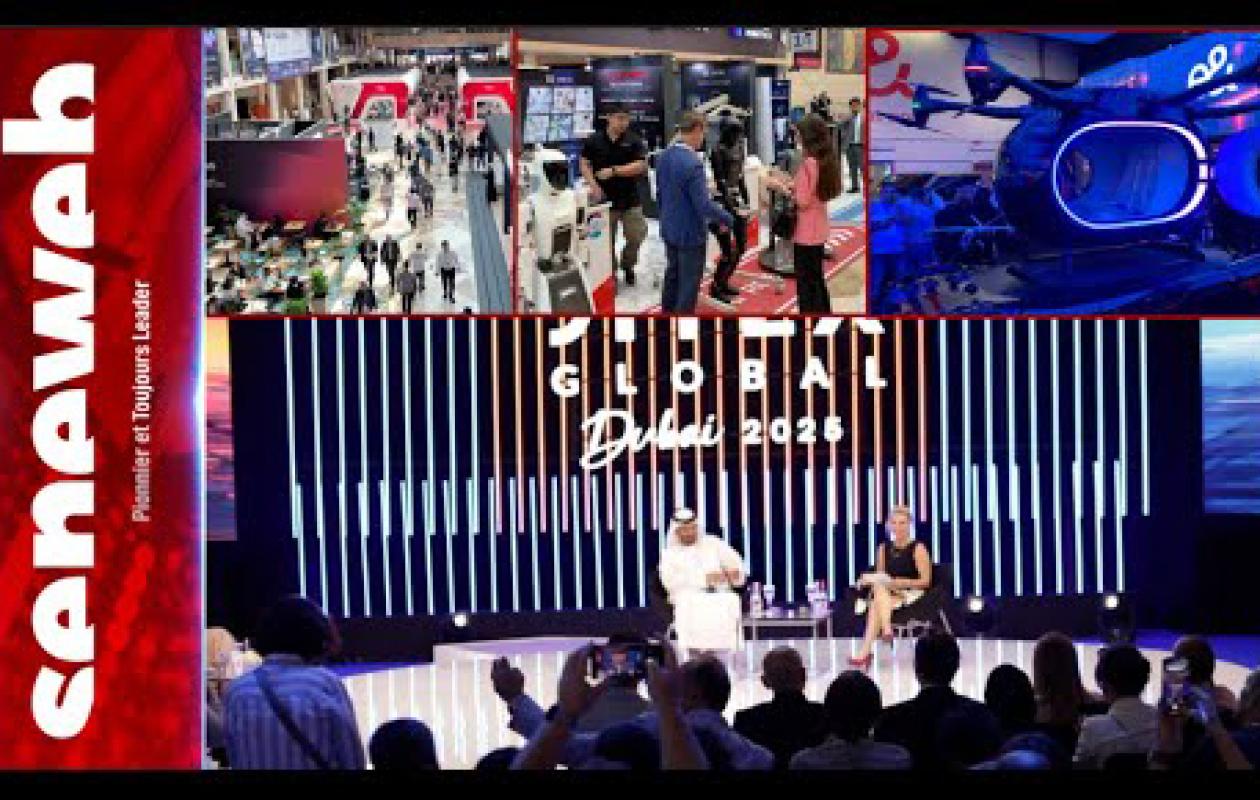
GITEX Global 2025 : Les Émirats arabes unis dévoilent leurs ambitions dans le domaine technologique
Dubai opened the doors to the 45th edition of GITEX Global on Monday, October 13. Running until October 17, more than 6,000 companies and 2,000 startups from 180 countries will showcase their technological innovations and advances in artificial intelligence.
The event aims to demonstrate the UAE's commitment to establishing itself as a global hub for technology and innovation. Opening the event, Abdullah Bin Touq Al Marri, UAE Minister of Economy, affirmed that artificial intelligence is a matter of national sovereignty. “AI is a matter of state sovereignty. Just as we allocate budgets for defense or cybersecurity, we must allocate them to artificial intelligence. AI is a matter of sovereignty for every nation,” he said.
According to official data provided by the authority, non-oil sectors now represent 77.3% of the national economy, compared to 69% five years ago. "After the pandemic, we went from 69% to 77.3% of the non-oil economy," the minister recalled, adding that the government is aiming for 80% within five years. He specified that this progression is based on the development of finance, manufacturing, and technology. The International Monetary Fund forecasts non-oil GDP growth of 4.5% for the current year, driven by trade, logistics, and investment flows.
Abdullah Bin Touq Al Marri emphasized the vital role of digital infrastructure, at the heart of which lies AI. The Ministry of Economy reported that it has begun integrating artificial intelligence into its operations. In this regard, he noted that a new trademark registration system allows for instant verification of the availability of a name, reducing processing time from several days to a few seconds. "AI now does the work in milliseconds and provides an immediate response," the minister explained. The government also amended the Commercial Transactions Law to include references to artificial intelligence.
By 2030, the UAE government hopes that projects led by Masdar and ENEC should provide most of the necessary capacity. “We are not wall builders, but bridge builders. Use the Emirates as your bridge: here, we connect the world,” said Abdullah Bin Touq Al Marri. The minister also discussed the many challenges AI poses. It is transforming the job market, but he said this development is similar to previous industrial revolutions, which increased productivity and created new professions. “What used to take several days can now be accomplished in five minutes. Humans, by nature, never stop,” he said.
For him, the real challenge lies in internal preparation, developing the systems, skills, and infrastructure needed for the large-scale use of AI. “It’s a race against ourselves: our ability to adapt our infrastructure, train our talent, and align our strategies,” he concluded.
No more traffic jams, make way for flying cars
Beyond official announcements, GITEX Global 2025 showcases innovations in mobility. Hanxuan Liu, product planning specialist at e& etisalat, presented his company's first-generation flying car. "This is our first-generation flying car, consisting of two separate modules: the upper part is the flying module, an eVTOL aircraft, and the lower part is a chassis that allows the aircraft to move autonomously on the road," he explained.
The aircraft runs entirely on electricity and consists of six axles and twelve motors. It can take off, fly, and land vertically, both on its own chassis and directly on the ground. "In this vision, travel will become an integrated public service. It will be enough to buy a ticket and start your journey with one click, without any transition between different modes of transport," Liu said.
The vehicle can travel 30 kilometers in 20 to 30 minutes, with a recharge time of 30 to 45 minutes. The service is estimated to cost between $10 and $20, and commercial launch is expected within two years in China. The vehicle offers smooth and flexible mobility, even in areas with poor roads, by using small takeoff and landing areas, called vertiports. "The vehicle can take off from one vertiport and land on another, without using the chassis," the exhibitor added. The carbon fiber structure makes the vehicle lightweight and strong.
Commentaires (0)
Participer à la Discussion
Règles de la communauté :
💡 Astuce : Utilisez des emojis depuis votre téléphone ou le module emoji ci-dessous. Cliquez sur GIF pour ajouter un GIF animé. Collez un lien X/Twitter, TikTok ou Instagram pour l'afficher automatiquement.